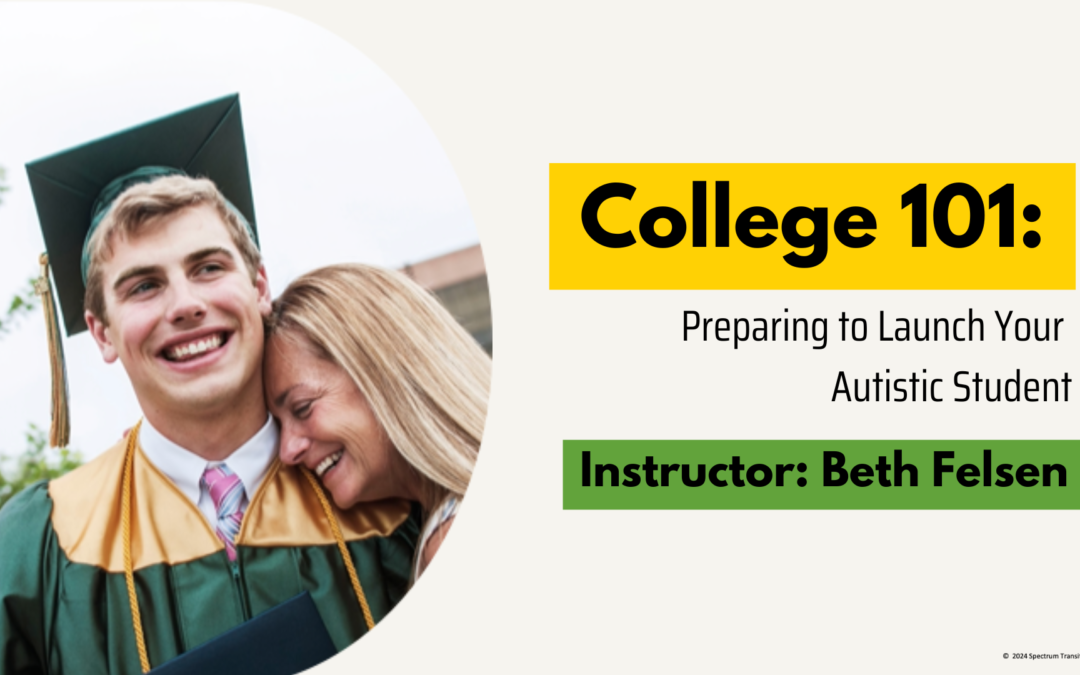After hearing parent after parent tell us….
“I wish we started building my student’s independence sooner”
“I didn’t realize that all of my help was actually hurting my kid”
“This would have been easier to teach in high school while they still lived at home!”
“I don’t think I can handle another panicked call from college.”
We knew we had to help families of autistic high school students better prepare for college life.
Families of autistic young adults consistently tell me how unprepared they felt for the realities of life after high school. Culturally, we focus on the college application process – essays and applications, visits and extracurriculars. We think that once your student gets that acceptance email, we’ve done our job and gotten them into college.
The reality is very different.
That acceptance letter is the start of the college transition. This is your student’s first experience with true independence. And it can be a bumpy road.
I’ve been there.
I remember exactly what it felt like to get that call from my student midway through the first semester. Move in day went smoothly and they seemed to be getting the hang of classes and a new schedule. Then a few weeks pass and something tough happens….
…maybe your student fails a midterm exam
….maybe your student gets left out of a big social event
….maybe those feelings of homesickness become overwhelming.
You can feel that phone call in the pit of your stomach. What do you do next? Do you rescue your student from campus? Is this a time for tough love so they know they can manage hard situations? What are the consequences of your decision either way?
College is a time of growth and exploration. It’s normal for students to experience setbacks and frustrations. But it can be really hard for your student to know what to do if they haven’t had the chance to practice in high school.
College 101 guides your family to build these college readiness skills in high school to improve their confidence, independence and resilience. When those tough moments come along in college, they will be able to rely on their own skills to get back on track.
Start now. Start early. The best way for your student to thrive at college is to teach them the college readiness skills while they are at home.

